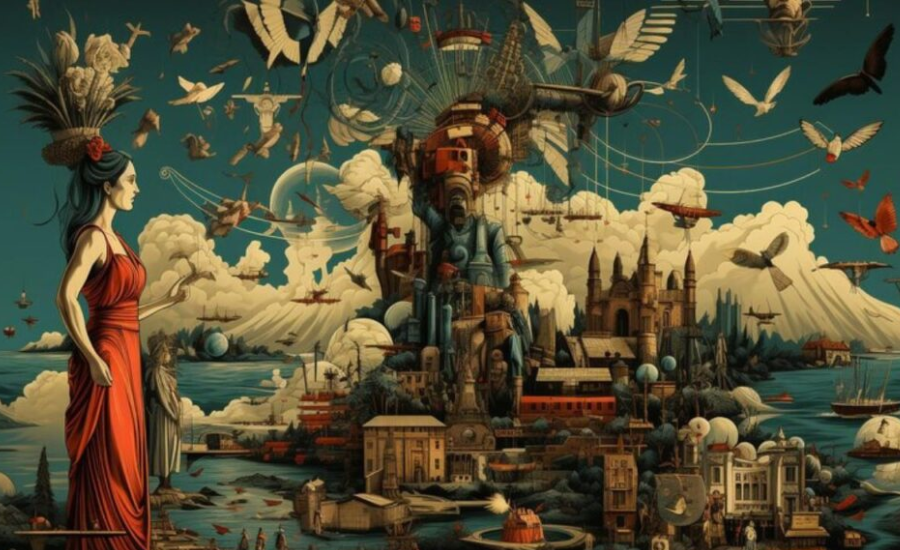
Exploring the Depths of Ancient Artz
Ancient art is a remarkable testament to the ingenuity, beliefs, and creativity of early civilizations. Under the umbrella term Ancient Artz, we find an array of masterpieces that reflect humanity’s enduring quest for self-expression, spirituality, and cultural identity. In this article, we journey through the fascinating epochs of ancient art, uncovering its diversity and enduring significance.
Understanding Ancient Artz
The term Ancient Artz refers to the vast collection of artistic endeavors created by ancient civilizations, including sculptures, paintings, architecture, pottery, and decorative arts. Each artifact holds a story, serving as a bridge to understanding the values, traditions, and daily lives of our ancestors.
The Early Beginnings of Ancient Artz
Prehistoric Era: The Birth of Creativity
The story of ancient art begins with prehistoric humans, who left their mark on the natural world with simple yet profound works of art.
- Cave Art: Found in sites like Lascaux and Chauvet, these vibrant depictions of animals and human figures demonstrate a connection with nature and early spirituality.
- Stone Carvings and Tools: Prehistoric tools and carvings served functional purposes while often featuring artistic embellishments.
Mesopotamian Marvels
Mesopotamia, known as the birthplace of civilization, is also home to some of the earliest known art forms.
- Ziggurats and Temples: These massive structures symbolized humanity’s connection to the divine.
- Cylinder Seals: Intricately carved seals were used to mark possessions and documents, blending utility with artistic design.
Distinctive Styles of Ancient Artz
Egyptian Grandeur
The art of ancient Egypt was deeply tied to religion and the afterlife, resulting in works that exude mystery and symbolism.
- Pyramids and Tomb Paintings: These immortal structures and vibrant murals illustrate the Egyptians’ reverence for their gods and pharaohs.
- Statues and Figurines: The precision and symmetry of statues like the bust of Nefertiti highlight their advanced artistic techniques.
Mesoamerican Art
Civilizations such as the Maya, Aztecs, and Olmecs in the Americas contributed significantly to Ancient Artz.
- Stone Sculptures: The colossal heads of the Olmecs remain iconic symbols of their culture.
- Codices and Murals: Maya codices and murals offer a glimpse into their history, mythology, and astronomy.
Asian Traditions
Asia boasts an extraordinary variety of ancient art, reflecting its rich spiritual traditions.
- Indian Temples and Sculptures: Intricate carvings depicting deities and epics like the Mahabharata adorn temples across India.
- Chinese Calligraphy and Porcelain: Combining precision with beauty, Chinese art reflects a deep respect for harmony.
Symbolism in Ancient Artz
One of the most intriguing aspects of ancient art is its symbolic nature.
- Animals as Symbols: Lions, eagles, and serpents often symbolized power, wisdom, and transformation.
- Geometric Designs: Found in Islamic and Native American art, these patterns often represented cosmic order.
- Colors and Materials: Gold was synonymous with divinity, while blue and green often represented life and renewal.
Technological and Artistic Innovations
Ancient artists were not just visionaries; they were also inventors. Techniques like fresco painting, stone carving, and metalwork originated in ancient times. For instance:
- Lost-Wax Casting: This method, used for creating bronze statues, revolutionized sculpture.
- Architectural Brilliance: Ancient builders developed arches, columns, and domes that continue to inspire modern design.
The Global Influence of Ancient Artz
The legacy of Ancient Artz transcends time, influencing art, architecture, and culture across the globe.
- Renaissance Revival: During the Renaissance, European artists drew inspiration from Greek and Roman classics, reinterpreting their ideals.
- Modern Adaptations: Contemporary art often incorporates ancient motifs, such as Egyptian hieroglyphs or tribal designs, into fashion, decor, and visual media.
Preserving the Legacy of Ancient Artz
Preserving ancient art is a critical mission, as these masterpieces provide a tangible link to our past. Institutions worldwide are dedicated to restoration and protection, ensuring that future generations can marvel at these creations.
Digital technologies now play a vital role in documenting and sharing ancient artifacts, enabling global audiences to appreciate their beauty and significance.
Why Ancient Artz Remains Relevant
Ancient art continues to resonate because it speaks to universal human experiences: love, loss, triumph, and the search for meaning. It reminds us of the ingenuity and resilience of early civilizations while inspiring new generations of artists and thinkers.
Conclusion
Ancient Artz is not just a collection of historical artifacts; it is a celebration of human creativity and a reminder of our shared heritage. From the intricate designs of Mesopotamian seals to the grandeur of Egyptian pyramids, every piece tells a story that transcends time.
Never miss out on important news by staying connected with us: Tech Full Work
Average Rating